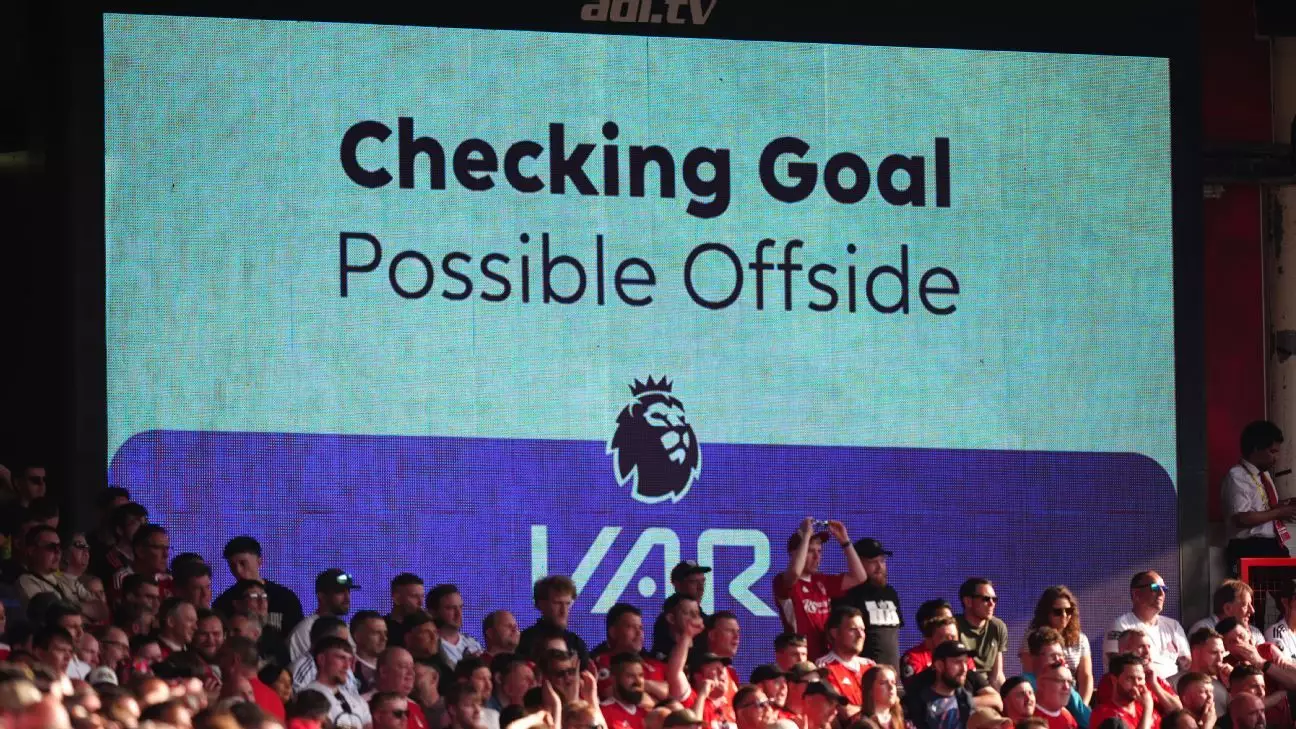In an unexpected twist in English football, Nottingham Forest has found itself in hot water after a social media post aimed at video assistant referee (VAR) Stuart Attwell. The post followed a heated Premier League match against Everton on April 21, during which Forest faced controversial officiating that significantly impacted their chances of avoiding relegation. The English Football Association (FA) has since levied a hefty fine of £750,000 (approximately $979,526), citing the violation of FA Rule E3.1 as the basis for their decision. As the smoke from the controversy begins to clear, it presents an important moment for reflection on the intersection of social media, officiating, and the integrity of the game.
The decision to impose a fine has ignited a debate about the nature and appropriateness of such penalties in response to clubs’ criticisms of officiating decisions. Nottingham Forest has deemed the sanction “wholly disproportionate” and has announced plans to appeal. The club’s insistence that the fine is excessive raises broader questions about how the FA manages instances of perceived misconduct. The notion that a social media post can elicit a financial penalty of this magnitude suggests a chilling effect on how clubs communicate about officiating. In essence, the fine appears to raise important issues about free speech, accountability, and transparency within football’s governing bodies.
Forest’s initial outcry stemmed from their inability to secure penalties during a critical match. They accused Attwell and the officiating crew of making “extremely poor” decisions that they felt directly influenced the outcome of the game. The tweets highlighted their frustration with the lack of intervention by VAR, a system designed to eliminate glaring errors. However, Forest’s post implying a potential bias due to Attwell being a Luton fan remained central to the FA’s decision to impose the fine. Their insistence that the comments do not question the integrity of the officials contradicts the regulatory ruling, creating a dissonance that might well lead to legal complications in their appeal.
The ramifications of this incident extend beyond a mere financial penalty; they touch on the very fabric of how clubs interact with governing bodies and the media landscape surrounding the sport. With social media as an integral part of modern communication, clubs must tread carefully, balancing advocacy for their team and players with the complex rules of conduct imposed by the FA.
Furthermore, the involvement of former referee Mark Clattenburg, who labeled the officiating errors as a “hat trick of howlers,” indicates a fracture in the relationship between clubs and match officials. His defense of Nottingham Forest’s reaction underscores the frustration that permeates the current officiating climate in the Premier League. If a club enlists a former referee to analyze a situation, it signals a deep-seated distrust in the current standards of officiating. This could potentially lead to a wider call for reforms in how referees are evaluated and monitored, particularly in high-stakes matches affecting relegation battles.
Most striking is how this episode highlights the emotional stakes for clubs fighting to remain in the Premier League. The pressure to succeed adds layers of complexity to how teams respond to perceived injustices, as every point can mean the difference between financial stability and spiraling into the lower leagues. The current climate reveals that clubs are no longer willing to remain silent when they feel wronged; instead, they are vocalizing their frustrations, albeit at a potential cost.
As Nottingham Forest prepares to fight their appeal, this incident could serve as a turning point for how English football handles communication and accountability regarding officiating decisions. A potential outcome of these discussions could lead to more transparent dialogue between clubs, referees, and the FA. For clubs like Forest, their ongoing struggle emphasizes the importance of reforming the culture around officiating standards and ensuring that voices within the game are considered in future policymaking.
This incident encapsulates a turbulent chapter in English football, revealing vulnerabilities within the governing structures and a growing tide of dissent among clubs. The melding of social media, passionate fan culture, and the high stakes of the Premier League will undoubtedly continue to shape how the sport evolves, and it remains to be seen how the FA will navigate this complex relationship moving forward. Ultimately, Nottingham Forest’s fight against the fine symbolizes a broader struggle for authenticity and accountability in the game’s administration.
